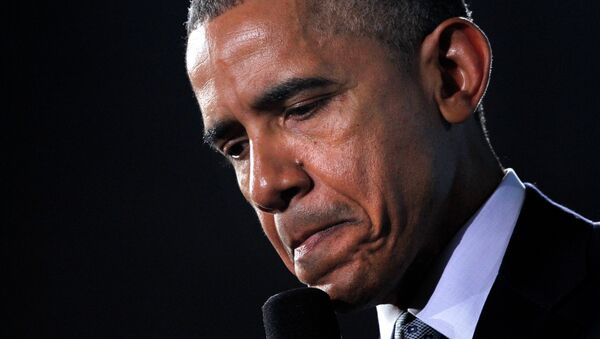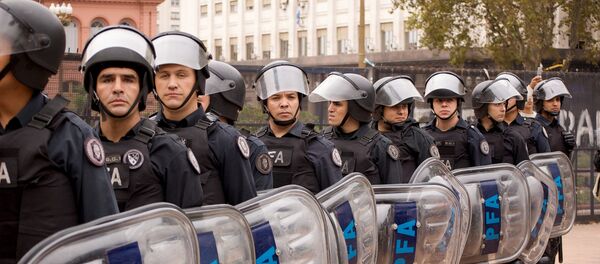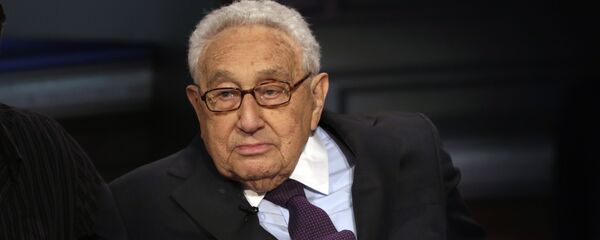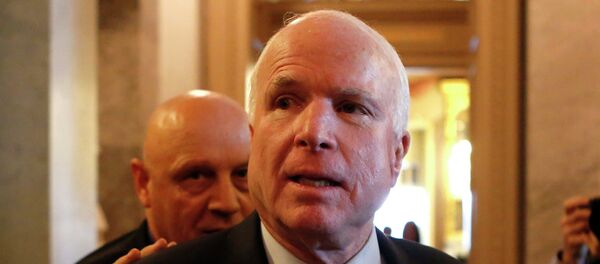Following an outpouring of criticism from the Argentine public, US President Barack Obama rescheduled a March 24th trip to Buenos Aires, a day that marks the 40th anniversary of the bloody 1976 coup that installed a military dictatorship supported by the US.
Instead, Obama will visit the southern tourist resort of Bariloche, nearly 1000 miles from the Argentinian capital, to play golf. The schedule change came after human rights activists demanded Obama cancel or reschedule his visit, out of respect for those who suffered under the dictatorship of Jorge Rafael Videla.
The exact number of victims is disputed, with some estimates at 30,000, and probably more. Videla’s left-wing opponents, mostly young, were "disappeared" during his seven-year dictatorial reign.
The Argentinian people largely place the blame for the atrocities committed by the junta on the United States. They regard the United States as being responsible for deposing President Isabel Perón in 1976 and for supporting Videla’s security forces. Officially, the US State Department admits to having knowledge of the intended coup two months prior to its occurrence.
Adolfo Pérez Esquivel, 1980 Nobel Peace Prize recipient and Argentine human rights activist, went further, declaring that "Obama represents a country that was responsible for various military coups in Latin America, including those in Chile and Argentina."
"In 1976, while you were only 14 years old, we were starting the most tragic period of our history, with the implementation of a state terrorism which subjected our people to persecution, torture, death and the forced disappearance of persons," Esquivel stated. "I am writing as a survivor of that horror [which included] financing, training, and coordination [of the atrocities] by the United States."
Declassified US documents support Esquivel’s claim that the US not only possessed prior knowledge of the coup but actively sanctioned mass disappearances under Videla’s reign.
In a 1976 conversation between Argentina’s then foreign minister César Guzzetti and former US Secretary of State Henry Kissinger, the former requested US "understanding and support to defeat ‘terrorism,’" to which Kissinger replied, "If there are things that have to be done, you should do them quickly… The quicker you succeed the better."
Robert Hill, then US ambassador to Argentina, reported to the State Department that Videla’s regime understood Kissinger’s remarks to be full complicity by Washington in the human rights offenses conducted by Videla’s thugs. “Guzzetti went to the US fully expecting to hear some strong, firm, direct warnings on his government’s human rights practice, but instead he returned in a state of jubilation.”
US tolerance of the abuses exercised by the Argentinian government ended when Jimmy Carter took office in 1977, quickly denouncing the activities, and pledging to make human rights the focus of his foreign policy agenda.
The initial plan by Obama to visit on the anniversary of the Argentine coup is additionally inappropriate this political season. The leading US candidate for President, Obama’s former Secretary of State Hillary Clinton, counts the infamous Henry Kissinger as one of her mentors, and a key foreign policy confidante.
Clinton’s praise and support for Kissinger come despite global condemnation against the latter as a principal US architect of war crimes in Vietnam, Cambodia, Laos, Bangladesh and Timor, Chile, Cyprus, and Argentina. Kissinger also notoriously called for the assassination, by car bombing, of Chilean diplomat Sergio Orlando Letelier in Washington, DC.






